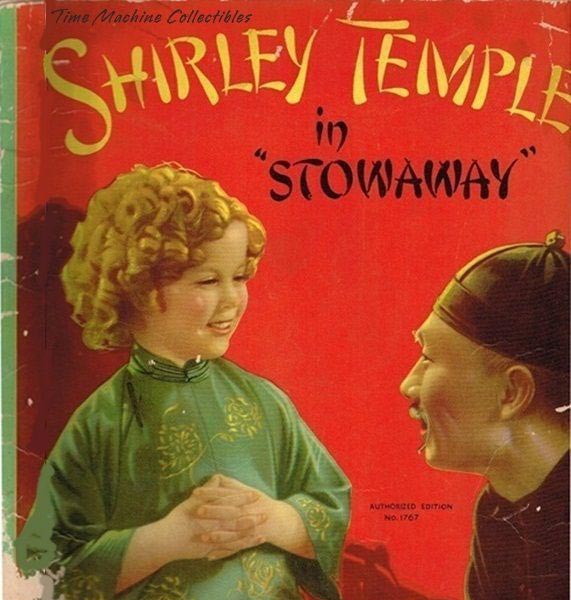China's memories of Shirley Temple
- By Zhang Rui
 0 Comment(s)
0 Comment(s) Print
Print E-mail China.org.cn, February 12, 2014
E-mail China.org.cn, February 12, 2014
Shirley Temple Black, one of the most iconic child stars of the 20th century, died at 85 on Monday, leaving the Chinese people with vivid memories.
|
Shirley Temple [File photo] |
When Shirley Temple visited China in April 1977, she came as an American diplomat, not as a movie star. That was when she became active in politics as she was appointed Representative to the 24th United Nations General Assembly, United States Ambassador to Ghana, Ambassador to Czechoslovakia and the first female Chief of Protocol of the United States from 1969 - 1992.
Born in Santa Monica, California, on April 23, 1928, the dimpled actress found fame at the height of the Great Depression in movies such as "Heidi," "Curly Top," "Bright Eyes," "The Little Colonel" and "The Littlest Rebel" since the age of three.
She actually played a Chinese role of "Ching-Ching" in "Stowaway" (1936), which tells the story of how Ching-Ching gets lost in Shanghai and is befriended by the American playboy Tommy Randall. She falls asleep in her car which winds up on a ship headed for America. Susan Parker, also on the ship, marries Randall to give Ching-Ching a family. Temple wore Chinese clothing, played the Chinese musical instrument erhu and spoke in Chinese in the film, and the scene is continuing to enthrall many Chinese people today after the clip was put online on Tuesday.
"Temple's name first appeared in the Chinese movie schedule in the Shen Bao (Shanghai News) newspaper in 1934," said Prof. Shi Chuan, vice president of the Shanghai Film Association. "Her name kept appearing on the schedule that year and she was a hit." Chinese memorabilia of Temple has now been put on display in the Shanghai Film Museum.
Shi said Temple was not just a "happy symbol" for audiences; she also introduced a Hollywood children's musical wave into China, influencing Chinese filmmaking at that time. For example, in 1930s Shanghai, the Chinese child star Hu Rongrong started to rise to film stardom and imitated Temple's tap dance moves in the film "Ya Sui Qian" (Lucky Money).
Temple prospered again in China in the late 1980s after four decades. At that time, China imported nine of Temple's movies including "Heidi" and "The Little Princess" for TV broadcast as 20th Century Fox Film Corporation gave the broadcast rights free to China Central Television. These films were instant hits among TV audiences after heavy rotations.
"I felt very sad when I heard of the news of her death," said Liu Chunyan, the famous Chinese TV host who once dubbed Temple's roles in four of those films, "Temple's cute and beautiful images kept on appearing in my mind. I was honored to dub her characters and now I'm sad about the passing away of the great artist."
Liu remembered she was assigned to dub Temple in 1989 and when she watched the original films, she was touched by Temple's wonderful performance. "I read the script and lines repeatedly and thought for a long time how to use my best voice for her. At that time, most Chinese people had only heard her name in the news but had never seen her films. We prepared for it carefully and I was under great pressure."
Liu received a Flying Apsaras Award in 1989, an award for excellent Chinese TV programs, for her dubbing of Temple.
Temple died of natural causes on Monday at her home in Woodside, California. Her family said, "She was surrounded by her family and caregivers. We salute her for a life of remarkable achievements as an actor and as a diplomat."
Temple married Charles Black in 1950, a marriage that lasted until his death in 2005 at the age of 86. Temple is survived by her children Linda Susan, Charlie Jr. and Lori, along with granddaughter Teresa and two great-granddaughters, Lily and Emma.
Temple was the top box-office draw for four years in a row between 1935 and 1938. Licensed merchandise including dolls, dishes and clothing also capitalized on her wholesome image. She won a special Academy Award in early 1935 for her "outstanding contribution to screen entertainment" in the previous year. Temple is the recipient of awards and honors including Kennedy Center Honors and a Screen Actors Guild Life Achievement Award. In 1999, the American Film Institute ranking of the top 50 screen legends ranked Temple at number 18 among 25 actresses.
She also sat on the boards of corporations and organizations including The Walt Disney Company, Del Monte Foods and the National Wildlife Federation.
Professor Shi said, "The Shirley Temple phenomenon came to China twice, first in the 1930s and then in the 1980s. Her influence spanned generations. For China's audiences, she was the inspiration and enlightenment of child innocence."
Follow China.org.cn on Twitter and on Facebook to join the conversation. You can use the hashtag #ShirleyTemple to share your thoughts on this story.







Go to Forum >>0 Comment(s)